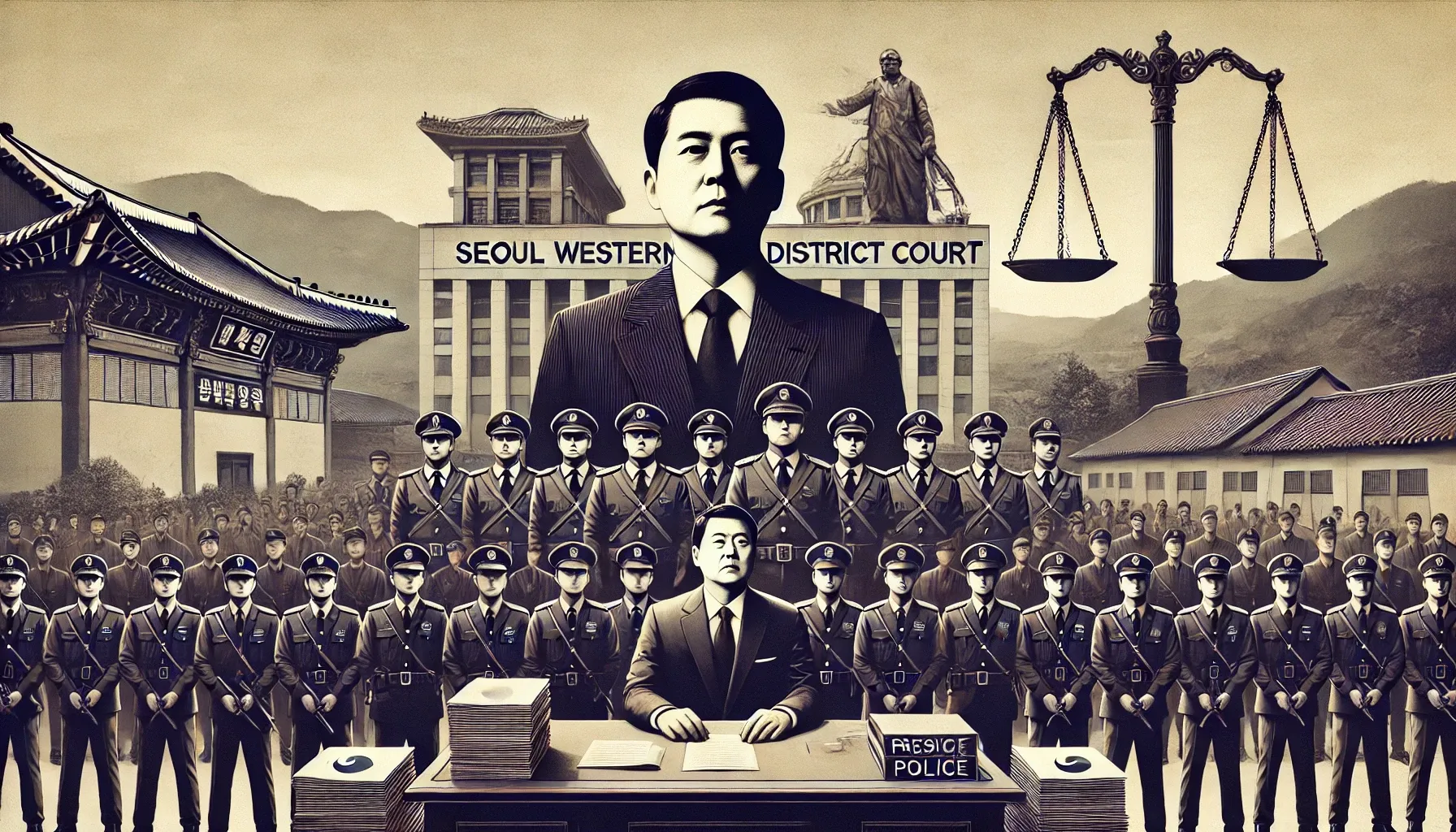South Korea’s court has issued an arrest warrant for impeached President Yoon Suk-yeol over his martial law decree, marking a historic first. Yoon faces charges of insurrection and abuse of power.

In a historic first for South Korea, a court has issued an arrest warrant for impeached President Yoon Suk-yeol over his brief imposition of martial law on December 3, 2024. The warrant, granted by the Seoul Western District Court on Tuesday, marks an unprecedented step in the nation's legal and political history. President Yoon faces charges of insurrection and abuse of power, crimes punishable by life imprisonment or even the death penalty. The decision comes amid a deepening leadership crisis in South Korea, with the nation’s political stability hanging in the balance.
Historic Arrest Warrant and Legal Implications
Court’s Decision and Execution Timeline
- The Joint Investigation Headquarters, comprising officials from the Corruption Investigation Office for High-ranking Officials (CIO), police, and the defense ministry, sought and obtained the arrest warrant.
- According to Oh Dong-woon, the head of the CIO, the warrant will be executed “within the valid period,” which expires next Monday.
- Oh warned: “Anyone obstructing the execution of the warrant, such as setting up barricades or resisting investigators, will face prosecution.”
Security Coordination and Legal Challenges
- Yoon’s security detail has previously blocked investigators from executing search warrants at the presidential office compound and his residence.
- The Presidential Security Service (PSS) stated it would handle the warrant in compliance with legal processes, though Yoon’s legal team has labeled the warrant “illegal and invalid.”
- Yoon’s lawyer, Yun Gap-geun, argued: “The CIO does not have the authority to investigate the president for insurrection.”
Charges Against Yoon Suk-yeol
Martial Law Decree and its Fallout
- On December 3, 2024, Yoon declared martial law, citing threats from “anti-state forces” and opposition obstructionism.
- His decree plunged South Korea into its worst political crisis in decades, leading to his impeachment by the National Assembly on December 14, 2024, in a 204-85 vote.
Potential Penalties
- The charges of insurrection and abuse of power carry severe penalties, including life imprisonment or the death penalty.
- Yoon, as a sitting president, lacks immunity from prosecution in cases involving rebellion or treason.
South Korea’s Political Crisis Deepens
Impeachment and Leadership Void
- Following Yoon’s suspension, Acting President Han Duck-soo assumed office but was impeached by the opposition-controlled legislature on Friday over his refusal to appoint three Constitutional Court justices.
- Authority has since passed to Deputy Prime Minister and Finance Minister Choi Sang-mok, who approved two judicial appointments on Tuesday, leaving one vacancy.
Constitutional Court’s Role
- The Constitutional Court has up to six months to decide whether to uphold Yoon’s impeachment or restore his presidency. At least six of the nine justices must approve the impeachment to remove Yoon permanently.
Defense and Opposition Reactions
Yoon’s Defense
- Yoon has defended his actions, stating: “The martial law decree was legal and necessary to protect the nation from anti-state threats.”
- His legal team plans to seek an injunction from the Constitutional Court to invalidate the arrest warrant.
Opposition Criticism
- The Democratic Party and other opposition factions have accused Yoon of undermining democratic processes and violating human rights through his martial law decree.
What Happens Next?
Arrest and Custody Timeline
- If arrested, Yoon will become the first sitting president in South Korean history to be taken into custody.
- Authorities will have 48 hours to decide whether to seek a warrant for his detention or release him.
Impact on Governance
- The prolonged political instability has raised concerns over governance, with the acting president’s authority limited until the Constitutional Court rules on Yoon’s impeachment.
Source: Al Jazeera





